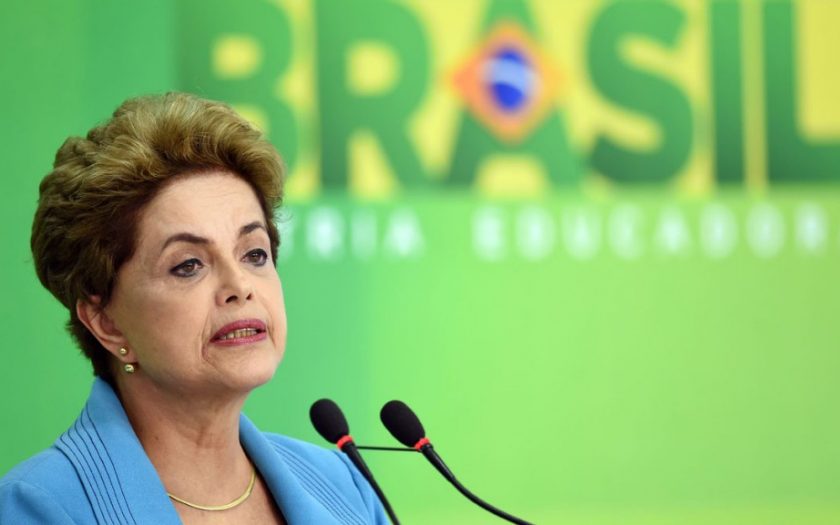
Brazil is in a bit of a mess at the moment.
The plunge in commodity prices has taken a serious toll on the economy, corruption scandals have engulfed several of its most powerful citizens, and to cap it all, they’ve just voted to impeach their president.
Yet the Brazilian market is already up 22% this year, while the Brazilian currency, the real, has jumped against the US dollar.
Can it continue?
Brazil’s woes
The Brazilian parliament has voted to start impeachment proceedings against Dilma Rousseff, the president. The vote was decisive, with the impeachment supporters winning significantly more votes than the two thirds they needed.
They’ve justified it on the basis that she fiddled the figures on the national accounts to help win re-election in 2014. Fiddling the national budget is not exactly a hanging offence for politicians – if it were, we’d have none left – and Rousseff is characterising it as a “coup”.
But she’s not popular. That’s partly down to the corruption scandals across the country, but it’s mostly to do with the state of the economy: it shrank by 3.8% last year – the worst figure in around 25 years.
The next step is for the Brazilian senate to vote on whether to put Rousseff on trial. If that happens, reports the BBC, she’ll be suspended and vice president Michel Temer will take over from her.
The trial itself could take a long time. Rousseff won’t go quietly. As she put it: “This is not the beginning of the end, this is the beginning of the fight, and it will be a long one.”
And, as Bloomberg points out, Temer might not be a miracle worker. “Initial euphoria over Temer’s plans to downsize government and cut spending has given way to concerns that he may struggle to unite a divided country, and that his party may get wrapped up in the two-year corruption scandal that has rocked the Rousseff administration.”
And yet, despite this mess, the market has been one of the best performing in the world this year so far. Exchange-traded funds tracking the market have been among the top investments this year, up around 25% to 30%. As a sector, pretty much only gold mining has done better.
Why Brazil has rebounded
Earlier this year, we suggested in MoneyWeek that, despite the horrendous mess that the Brazilian economy was in, it might be a good time to invest in the country.
Brazil has always looked attractive as a “long-term” investment. It’s a huge country. It has plenty of people and healthy demographics (ie, lots of young people). It’s rich in natural resources. There’s a growing middle class.
There’s also plenty of room for improvement – which is a double-edged sword. The old joke, of course, is that “Brazil is the country of the future – and it always will be”. But decent investment in infrastructure, reform of labour markets and a crackdown on corruption would all be steps in the right direction.
On a more short-term basis, the market rebound has come about as a result of two main things.
Firstly, markets are forward looking – they price in bad news before it happens. Once all the bad news is priced in, the fact that things are a mess doesn’t matter. The question is: can they get any worse? If not, then the market will generally pick back up as it starts to price in better news.
That’s why you buy when it looks as though things are at their bleakest. I’m not saying for a minute that that’s easy to do, because it’s not. Sometimes things look awful, but get worse. But the point is, turning points come at extremes. Either the market prices in too much gloom or it prices in too much cheer. In the end, the outcome is somewhere in the middle, and the market falls or rises to reflect that.
So that’s one reason why the Brazilian market has picked up so rapidly – the only way was up.
Secondly, the US Federal Reserve’s change of heart on raising American interest rates has helped to both weaken the dollar and buoy commodity prices. So emerging markets in general are enjoying a bit of relief.
Can this continue? Well, research group CrossBorder Capital points out that, despite the big rally, foreign money still seems to be flowing out of Brazil. If that starts to reverse, “it may represent a huge opportunity”, particularly as foreign money is rapidly returning to emerging markets in general.
In short, says CrossBorder, “the cycle appears to be bottoming just as the domestic political problems reach their peak”.
I’d stick with it. We’ll have more on Brazil and Latin America in general in an upcoming issue of MoneyWeek magazine.